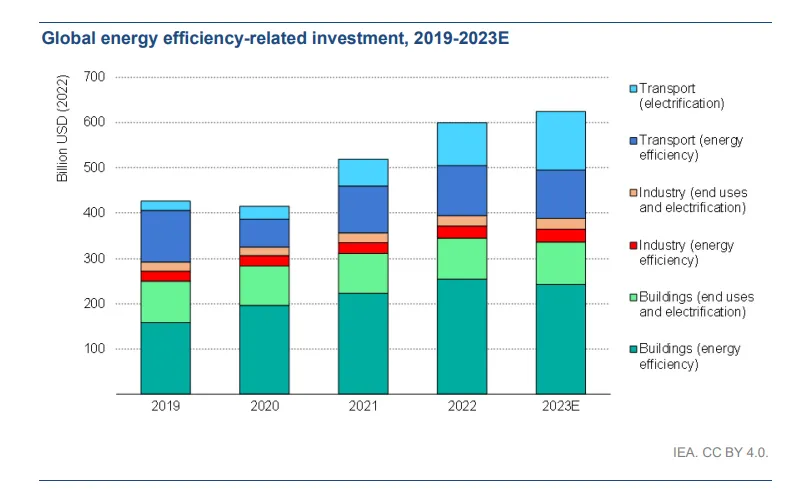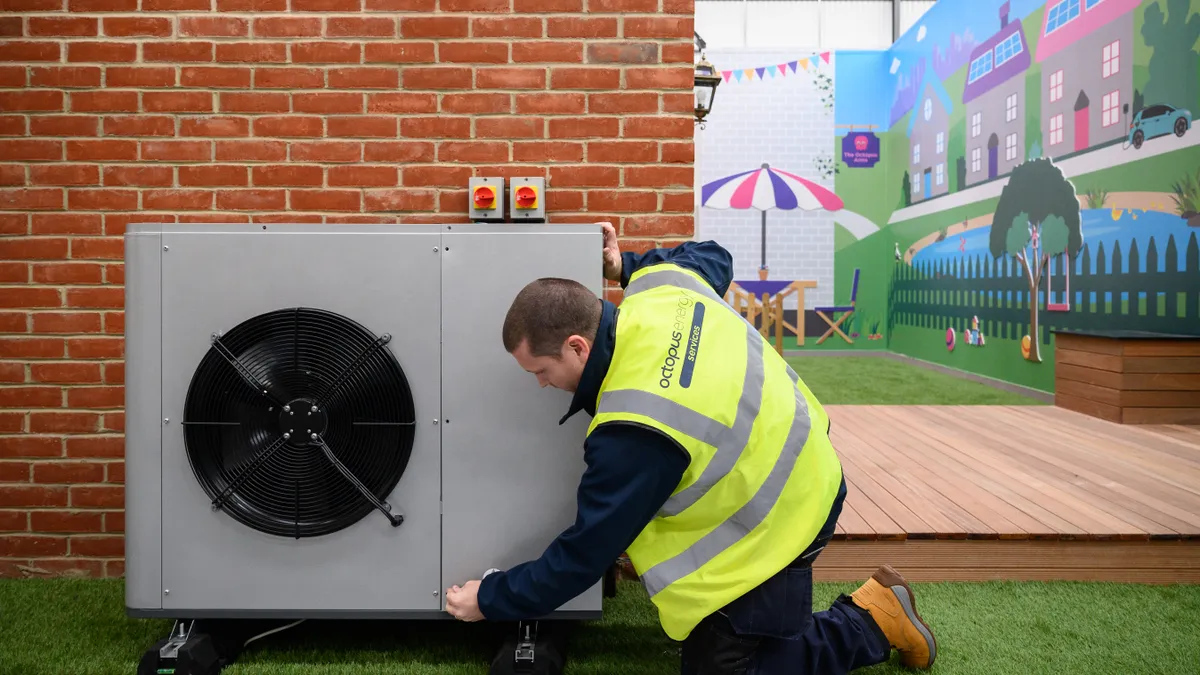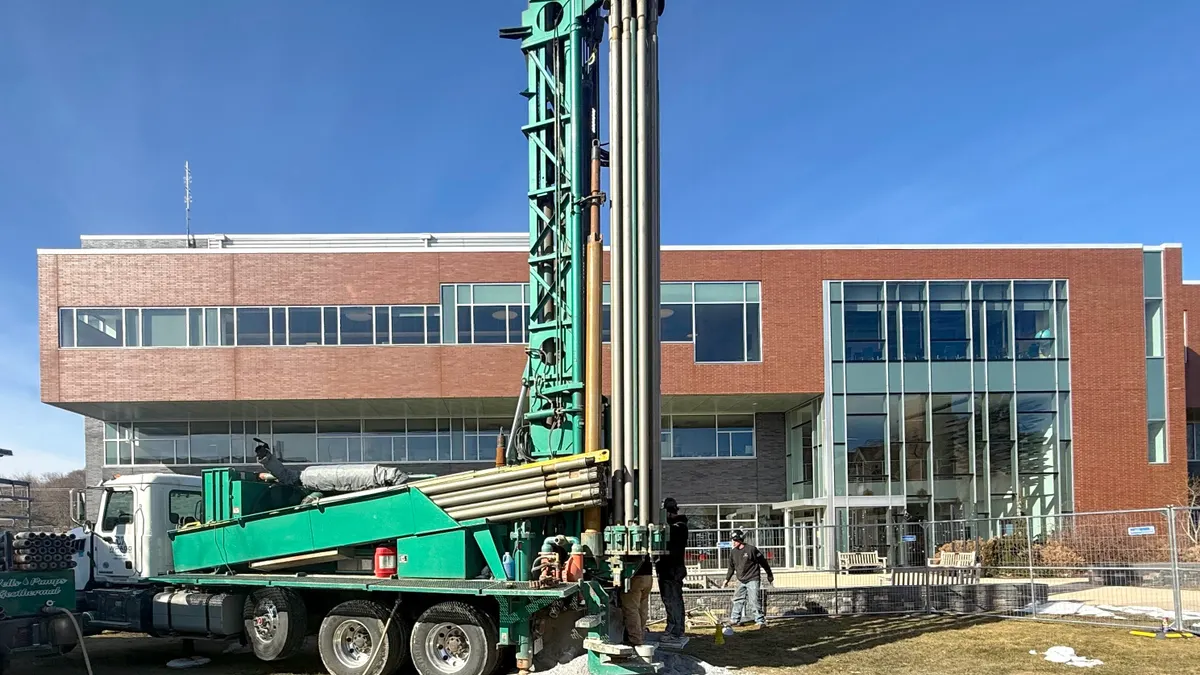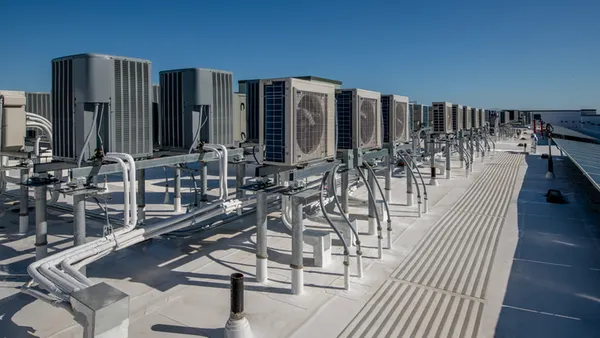Dive Brief:
- Global energy demand rose 1% in 2022 but the rate of energy efficiency improvements was double the average of the past five years boosted by “surging” sales in more efficient technologies like heat pumps and electric vehicles, the International Energy Agency said in a report released earlier this month.
- In the United States last year, residential heat pump sales exceeded gas furnaces for the first time, making up 53% of heating system sales.
- Sales of electric vehicles grew 55% last year in the United States, and in the first quarter of this year made up more than 7% of new car sales. Globally, EVs made up 14% of new car sales in 2022 and could reach 18% this year, IEA said.
Dive Insight:
Global investment in energy efficiency is expected to reach record levels of $624 billion in 2023, IEA said, “though growth is slowing due to increased cost of capital.”
Global energy efficiency investment in 2022 was about $600 billion, according to the report.

“Sales of key efficiency technologies are surging,” the report said. Heat pump sales grew more than 10% globally last year and in Europe increased by almost 40%. There were 2.3 million EVs sold worldwide in the first quarter of this year, a 25% boost over the same period last year.
“We are seeing strong momentum behind energy efficiency,” IEA Executive Director Fatih Birol said in a statement. “We now need to push into a higher gear and double energy efficiency progress by the end of this decade.”
Heat pumps are a “key technology” for decarbonization efforts, according to the report and new market data show that heat pump sales for residential space heating continue to rise significantly with a global increase of more than 10% in 2022.
Improvements in primary energy intensity increased to 2.2% in 2022, double the average over the previous five years and four times the rate in the last two years, IEA said. The sale of smart energy controls and building energy management systems increased last year but “remain far from the 2030 IEA Net Zero targets.”
Doubling the rate of energy intensity improvements globally, from 2% to above 4% would reduce global energy-related carbon dioxide emissions by almost 11 gigatons by 2030, the report concluded.
“We have all the ingredients. What we don’t have is time,” Schneider Electric Chairman Jean-Pascal Tricoire said. “Optimizing how we consume energy is the priority of how we tackle the climate-and-energy crisis.”
Last year Schneider Electric purchased AutoGrid, a company focused on the optimization and integration of distributed energy resources.













